This article was co-authored by Zora Degrandpre, ND. Dr. Zora Degrandpre is a Natural Health Doctor and Licensed Naturopathic Physician in Vancouver, Washington. She is a grant reviewer for the National Institutes of Health and the National Center for Complementary and Alternative Medicine. She received her ND from the National College of Natural Medicine in 2007.
There are 9 references cited in this article, which can be found at the bottom of the page.
This article has been viewed 65,554 times.
Oily skin is a common issue that affects millions of people. It's harmless, but could cause acne outbreaks and blemishes, so you're not alone if you want to reduce the oil on your skin. Fortunately, there are many ways to do this at home safely and naturally. Keep your skin clean and use some natural remedies to soak up excess oil. If these don't help, then a visit to your dermatologist can give you the guidance you need.
Steps
Keeping Your Face Clean
-
1Use gentle, fragrance-free face cleansers with no alcohol. Perfumes and alcohol will irritate your skin, which could stimulate further oil production. Make sure than any cleansers you use don’t contain these ingredients to avoid irritating your skin. Look for a product labeled “noncomedogenic,” meaning it won’t clog your pores or stimulate oil production.[1]
- Products labeled “hypoallergenic” should contain few additives and are less likely to cause irritation.
- Face washes that foam up are best because the suds lift dirt out of your pores.
-
2Apply a hypoallergenic moisturizer after you’re done washing. While it might seem counterproductive, keeping your skin moisturized is also important for controlling oil production. Find a fragrance-free, hypoallergenic moisturizer and apply a thin layer to your face right after you wash it. This prevents your skin from drying out and irritating.[2]
- Look for a moisturizer with at least an SPF-30 rating. This protects your skin from the sun’s rays when you go outside.
- If you need any recommendations for good products to use, ask your dermatologist.
Advertisement -
3Wash your face every morning, evening, and after sweating. Repeat your washing and moisturizing routine daily. Wash your face at least twice a day, in the morning and the evening before going to bed. If you’re active, then also wash your face after working out or sweating a lot. This keeps your skin oil-free throughout the day.[3]
- Remember to rinse your face thoroughly so there’s no soap scum left over. Also pat your face dry with a towel, don’t rub it. This can irritate your skin.
- Wash your face as soon as possible after exercising. Letting sweat stay on your skin could clog your pores and cause acne breakouts.[4]
-
4Soak up excess oil with blotting papers. If your skin is especially oily or you’re on the run a lot, you can use blotting papers from a pharmacy or beauty shop. Take one sheet at a time and blot around your face to soak up any remaining oil. This is a quick fix to get rid of oil throughout the day.[5]
- Don’t rub your face with the paper. This could spread oil and bacteria around. Just blot on the oily spots.
- Remember that blotting papers aren’t a replacement for washing your face. They’re only a temporary fix until you can get home and wash properly.
-
5Avoid oil-based makeup and lotions. As the name suggests, oil-based products increase the amount of oil on your skin, which can clog pores and trap dirt. Instead, look for water-based products. These are lighter and won’t clog your pores as easily.[6]
- Even if you use water-based makeup, make sure you always wash it off at the end of the day. Sleeping in your makeup can cause acne breakouts.
Using Natural Remedies
-
1Apply witch hazel to dry out oily spots. Witch hazel is a natural astringent that’s used in many acne products. Use it as a spot treatment for oily spots on your body. Pour some onto a cotton ball and swab any trouble spots to reduce oil and inflammation.[7]
- Witch hazel can sometimes irritate sensitive skin, so stop using it if it causes any redness or burning. It could also cause excessive dryness if you use too much.
- If the witch hazel makes your skin too dry, try diluting it with water. Pour a bit into a cup, and then add the same amount of water for a weaker solution.
-
2Moisturize your face with a colloidal oatmeal mask. Oatmeal helps fight inflammation and dryness, and also soaks up excess oil on your skin. Get some colloidal oatmeal from a pharmacy or health store. Mix 1/2 cup (64 g) with 1 cup (240 ml) of warm water until it makes a paste. Then, rub the mixture onto your face. Leave it on for 10-15 minutes, then wash it off with warm water.[8]
- You could add other ingredients like honey to the mask as well. This will help it stick together and moisturize your face better.
- Some products come with their own instructions for making an oatmeal mask. Follow the directions on any product that you use.
- Colloidal oatmeal is ground very fine. If you can’t find any, you can make your own by grinding up oats in a food processor.
-
3Make a facemask with honey to reduce oil. Honey also acts as a natural moisturizer that can improve your skin's health and regulate oil production. It’s also safe to apply directly onto your skin. Pour some honey into a bowl and rub it onto your face, or where you want to remove oil from. Let it sit for 10-15 minutes, then rinse it off with warm water.[9]
- Look for natural honey without any added chemicals or preservatives. Other chemicals could irritate your skin.
- It might be easier to do this right before you take a shower so you can wash the mask off easier.
- If you have longer hair, you should tie it back to avoid getting it stuck in the honey.
- You can also mix honey with your oatmeal mask for a comprehensive skin treatment.
-
4Cut out foods that raise your blood sugar levels. While not strictly a skin-care treatment, changing your diet can affect your skin’s appearance. Foods with a high glycemic index, meaning they spike your blood sugar, are associated with increased acne breakouts and oily skin. Cut out these foods to help reduce the oils on your skin.[10]
- Some foods with a high glycemic index are white breads, rice, pastas, breakfast cereals, potatoes, pumpkin, and melon.[11]
- Most desserts and sugary goods have a high glycemic index as well.
Seeking Medical Care
-
1Talk to a dermatologist if you’re worried your skin is too oily. It’s normal and healthy for you to have some oil on your skin. However, everyone’s oil production is different, and your skin may get very oily. If you feel like your skin has excess oil, consult a dermatologist. They can examine your skin and help you figure out what’s causing your excess oil.[12]
- After you know what’s causing your excess oil production, you can make changes to your skin care routine or diet to improve your skin.
- Your dermatologist will help you create a treatment plan to control your skin’s oil production.
-
2See a dermatologist if you have acne or blackheads. You may be able to treat your acne or blackheads using over-the-counter treatments. However, if your oily skin is causing a lot of acne or blackheads, it’s best to visit your dermatologist. They can help you clear your skin without risking scarring.[13]
- Your dermatologist can help you treat your acne both topically and using oral medications. They’ll also target the root cause so that you’ll experience fewer breakouts in the future.
-
3Ask your dermatologist about other treatment options if nothing works. If you’ve been trying everything to reduce your face oil but nothing seems to help, a dermatologist can offer you other treatments. Talk to them to learn about which options might work best for you. For instance, your dermatologist may be able to prescribe the following:[14]
- Retinoids
- Spironolactone
- Hormonal contraceptives
- Botox
- Photodynamic therapy
- Laser treatments
Warnings
- Never use remedies that dermatologists don't recommend. Some other popular remedies are using lemon juice or raw eggs on your face. Lemon juice is highly acidic and could burn your face, while raw eggs could cause salmonella. Neither of these are good for your face.⧼thumbs_response⧽
References
- ↑ https://www.aad.org/public/everyday-care/skin-care-basics/dry/oily-skin#
- ↑ https://www.aad.org/public/everyday-care/skin-care-basics/dry/oily-skin#
- ↑ https://www.aad.org/public/everyday-care/skin-care-basics/dry/oily-skin#
- ↑ https://www.mayoclinic.org/diseases-conditions/acne/diagnosis-treatment/drc-20368048
- ↑ https://www.aad.org/public/everyday-care/skin-care-basics/dry/oily-skin#
- ↑ https://www.aad.org/public/everyday-care/skin-care-basics/dry/oily-skin#
- ↑ https://www.ncbi.nlm.nih.gov/pmc/articles/PMC4025519/
- ↑ https://www.ncbi.nlm.nih.gov/pmc/articles/PMC3508548/
- ↑ https://www.ncbi.nlm.nih.gov/pmc/articles/PMC3609166/
- ↑ https://www.ncbi.nlm.nih.gov/pmc/articles/PMC4884775/
- ↑ https://www.health.harvard.edu/diseases-and-conditions/glycemic-index-and-glycemic-load-for-100-foods
- ↑ https://www.aad.org/public/skin-hair-nails/skin-care/oily-skin
- ↑ https://www.aad.org/public/skin-hair-nails/skin-care/oily-skin
- ↑ https://www.ncbi.nlm.nih.gov/pmc/articles/PMC5605215/
About This Article
If you want to reduce the oil from your face naturally to avoid acne and blemishes, you’ll want to start by keeping your face clean. Wash your face every morning and evening as well as after sweating to keep your skin oil-free. When cleaning your skin, use a gentle, fragrance-free cleanser with no alcohol, which can irritate your skin and lead to more oil production. When you’re done washing, use a hypoallergenic moisturizer to prevent your skin from drying out. In addition to cleansing your skin, you can use some natural remedies, like spot-treating oily spots with witch hazel to dry them out. You can also make a facemask with honey to reduce the oil on your face. For more tips from our Medical co-author, including how to change your diet to reduce the oil on your face, keep reading!
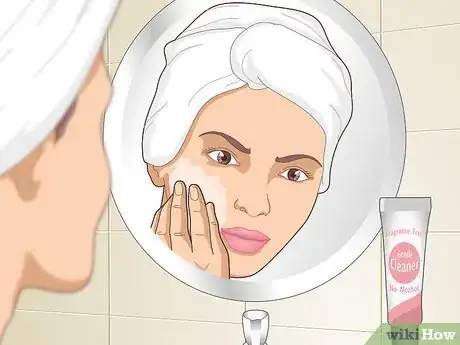
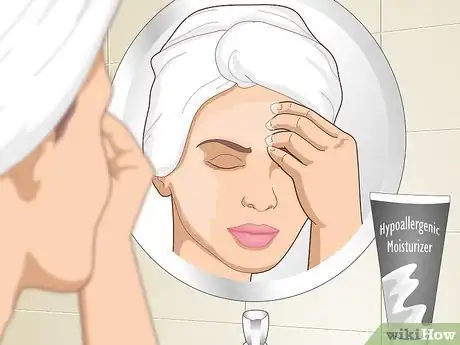
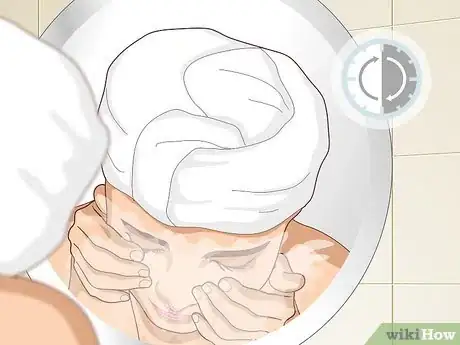
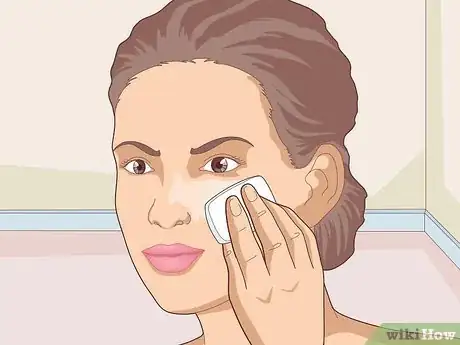
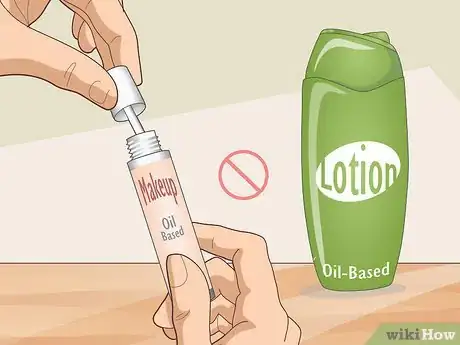
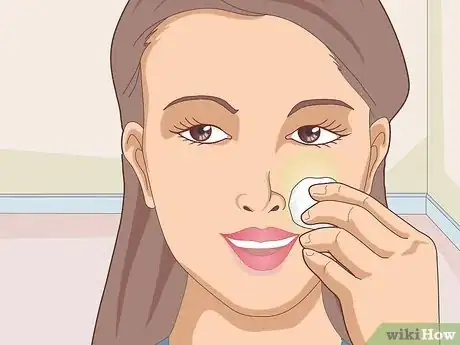
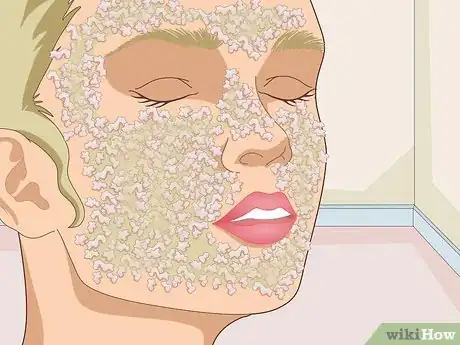
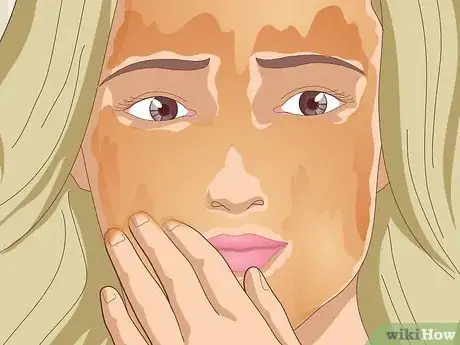
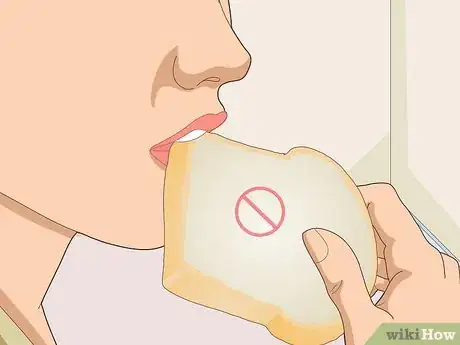
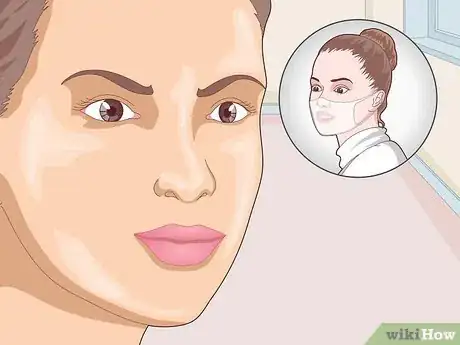
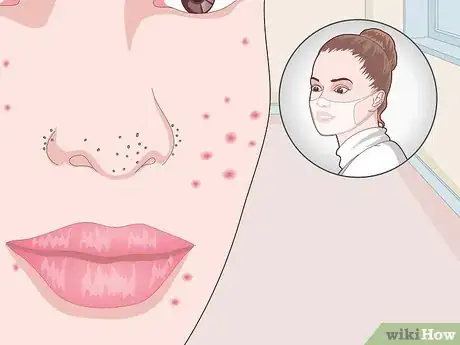
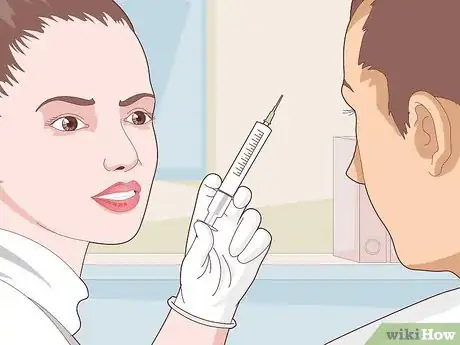
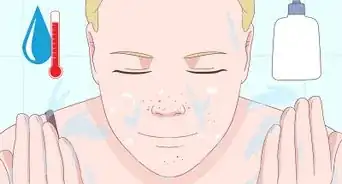
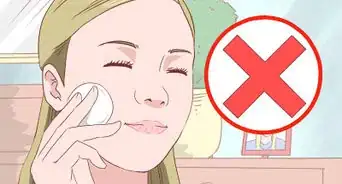



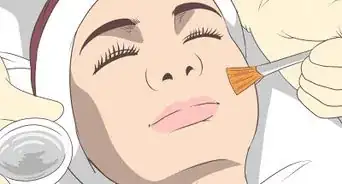


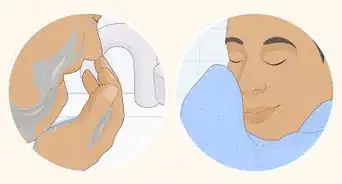
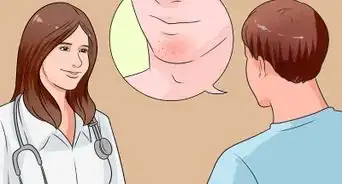
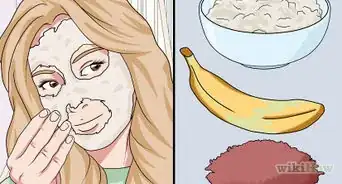









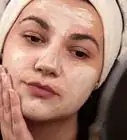

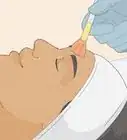



































Medical Disclaimer
The content of this article is not intended to be a substitute for professional medical advice, examination, diagnosis, or treatment. You should always contact your doctor or other qualified healthcare professional before starting, changing, or stopping any kind of health treatment.
Read More...